Practicing Witchcraft Without Relying On Pseudosciences Involves Focusing On The Aspects Of The Craft
Practicing witchcraft without relying on pseudosciences involves focusing on the aspects of the craft that are rooted in personal empowerment, psychology, and symbolism. Here are some suggestions:
Intention Setting: Clearly define your intentions and goals. This is a psychological practice that helps you stay focused on your objectives.
Symbolism: Use symbols and tools that hold personal meaning for you. The power comes from your connection to these symbols rather than any inherent magical properties.
Meditation and Mindfulness: Incorporate meditation and mindfulness practices to enhance your focus, mental clarity, and connection to your inner self.
Energy Work: Instead of viewing energy in a mystical way, consider it as a metaphorical representation of your mental and emotional state. Practices like grounding and centering can be beneficial.
Herbology and Aromatherapy: Explore the psychological and physiological effects of herbs and scents. Use them for their known properties rather than relying on magical attributes.
Candle Magic: Utilize candles as a symbolic tool. The act of lighting a candle can represent bringing light to a situation or setting an intention.
Oracle Cards: If you use Oracle cards, treat them as a tool for introspection and self-reflection. It can be a way to access your subconscious thoughts rather than using Tarot for predicting the future.
Moon Phases and Seasons: Align your practices with moon phases and seasonal changes. This can be a way to stay connected to the natural cycles of life.
Journaling: Keep a magical journal to document your experiences, thoughts, and the results of your practices. This can help you track your personal growth and insights.
Self-Reflection: Regularly reflect on your beliefs, practices, and experiences. Be open to adjusting your approach based on what resonates with you personally.
Remember, the key is to find practices that align with your own beliefs and resonate with you on a personal level. It's even more beneficial to add practices to suit your understanding of the world and your own psychological well-being.
More Posts from Dipstickflopdoodle and Others
why do i keep seeing “young!ditzy!reader” or “trophywife!reader” or stupid shit like that where authors make the ‘reader’ the most fragile person in the world??
at the end of the day, this recession theory shit is real. and it is seen clearly as day on this app.
why are the inspo pics for the oneshot just blonde and skinny white girls?? why are we making the reader sweet and innocent and fragile??
and look, there’s nothing wrong about being a blonde and skinny white girl, but after seeing the same pictures as inspo for a series or a oneshot, it gets annoying and repetitive how there’s no diversity.
also, i’m not saying every post in the “x reader” tag is like this, but they just keep popping up on my feed and i had to speak my mind about it.
please, if anyone reads this, tell me if you found the same problem or i’m just going crazy.
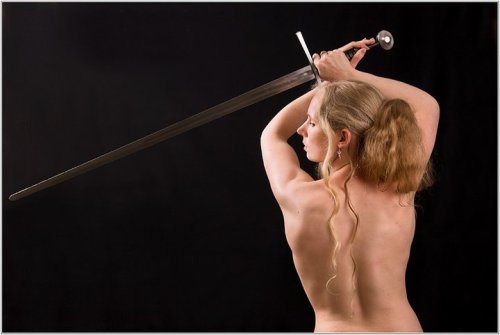
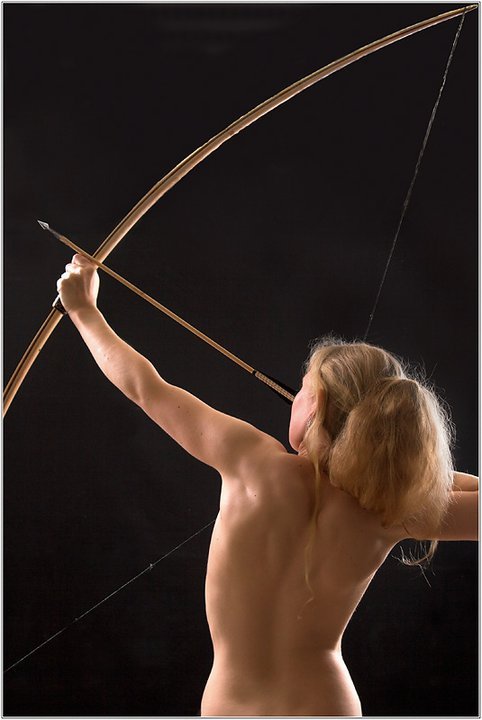
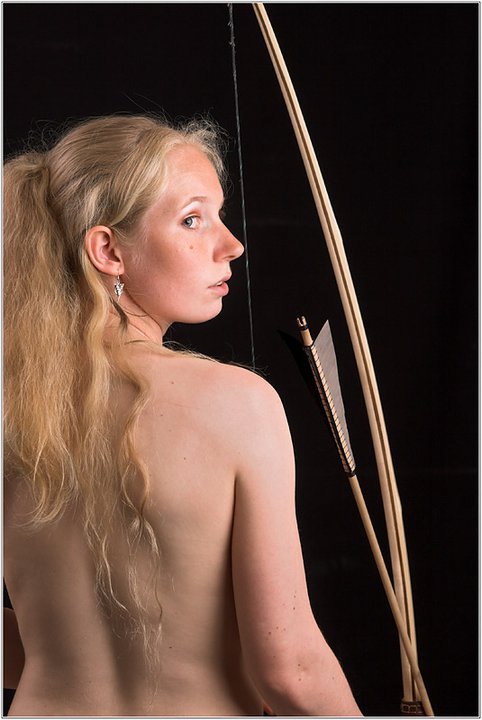
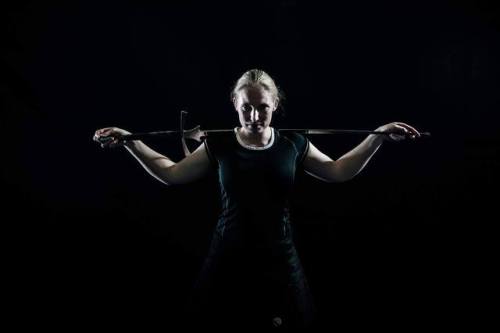
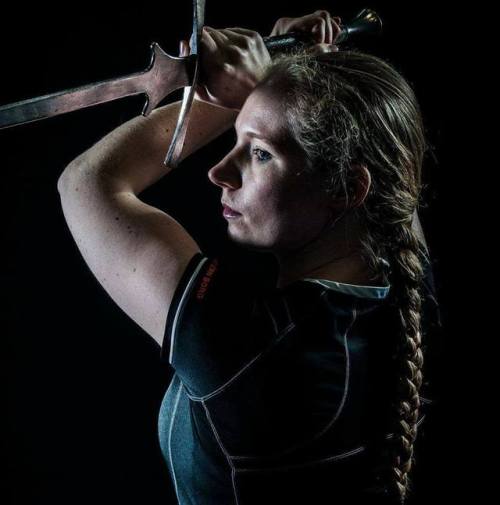

Dutch longsword fencer Tosca Beuming
Photographed by Martin Philippo and Andress Kools
how to start reading again
from someone who was a voracious reader until high school and is now getting back into it in her twenties.
start with an old favourite. even though it felt a little silly, i re-read the harry potter series one christmas and it wiped away my worry that i wasn't capable of reading anymore. they are long books, but i was still able to get completely immersed and to read just as fast as i had years and years ago.
don't be afraid of "easier" books. before high school i was reading the french existentialists, but when getting back into reading, i picked up lucinda riley and sally rooney. not my favourite authors by far, but easier to read while not being totally terrible. i needed to remind myself that only choosing classics would not make me a better or smarter person. if a book requires a slower pace of reading to be understood, it's easier to just drop it, which is exactly what i wanted to avoid at first.
go for essays and short stories. no need to explain this one: the shorter the whole, the less daunting it is. i definitely avoided all books over 350 pages at first and stuck to essay collections until i suddenly devoured donna tartt's goldfinch.
remember it's okay not to finish. i was one of those people who finished every book they started, but not anymore! if i pick up a book at the library and after a few chapters realise i'd rather not read it, i just return it. (another good reason to use your local library! no money spent on books you might end up disliking.)
analyse — or don't. some people enjoy reading more when they take notes or really stop to think about the contents. for me, at first, it was more important to build the habit of reading, and the thought of analysing what i read felt daunting. once i let go of that expectation, i realised i naturally analyse and process what i read anyway.
read when you would usually use your phone. just as i did when i was a child, i try to read when eating, in the bathroom, on public transport, right before sleeping. i even read when i walk, because that's normally a time i stare at my screen anyway. those few pages you read when you brush your teeth and wait for a friend very quickly stack up.
finish the chapter. if you have time, try to finish the part you're reading before closing the book. usually i find i actually don't want to stop reading once i get to the end of a chapter — and if i do, it feels like a good place to pick up again later.
try different languages. i was quickly approaching a reading slump towards the end of my exchange year, until i realised i had only had access to books in english and that, despite my fluency, i was tired of the language. so as soon as i got back home i started picking up books in my native tongue, which made reading feel much easier and more fun again! after some nine months, i'm starting to read in english again without it feeling like a huge task.
forget what's popular. i thought social media would be a fun way to find interesting books to read, but i quickly grew frustrated after hating every single book i picked up on some influencer's recommendation. it's certainly more time-consuming to find new books on your own, but this way i don't despise every novel i pick up.
remember it isn't about quantity. the online book community's endless posts about reading 150 books each year or 6 books in a single day easily make us feel like we're slow, bad readers, but here's the thing: it does not matter at all how many books you read or what your reading pace is. we all lead different lives, just be proud of yourself for reading at all!
stop stressing about it. we all know why reading is important, and since the pandemic reading has become an even more popular hobby than it was before (which is wonderful!). however, there's no need to force yourself to be "a reader". pick up a book every now and then and keep reading if you enjoy it, but not reading regularly doesn't make you any less of a good person. i find the pressure to become "a person who reads" or to rediscover my inner bookworm only distances me from the very act of reading.
so I go to animation school now
𝑺𝑪𝑬𝑵𝑨𝑹𝑰𝑶 𝑷𝑹𝑶𝑴𝑷𝑻𝑺.
↬ OF FAIRYTALES, FOLKLORE AND FAEKIND.
scenarios inspired by various settings, encounters & magic tucked between pages, fashioned by the author.
+ feel free to change pronouns / roles !
FAIRYTALES.
‘ let me guess, you thought a true love’s kiss would help you. ’
‘ you will always follow the trail in the wood, and it will guide you on the same path, to the same cottage, the same witch. it will always be your undoing. ’
‘ i have never seen a more tragic creature. how might i help you ? ’
‘ you must take this knife and plunge it into his / her / their heart. ’
‘ forget yourself. that is how you break your curse. ’
‘ remove this thorn from my hand, and you will be rewarded. ’
‘ i’m tired of being a prince. i think i would actually enjoy being a frog. ’
‘ tell me of the beast, and i will hunt it for you. ’
‘ mice are never just mice, and pumpkins are rarely just pumpkins. ’
‘ i don’t think breaking a spell should be this simple. ’
‘ i never thought i’d return here, to the site where it all began. ’
‘ are you an orphan ? it’s just that they’re always finding themselves in magical predicaments. ’
‘ the mirror speaks falsely in your ear. it is your true curse. ’
‘ my heart feels uneasy, although i am free. is it supposed to ? ’
‘ i’m sorry, it’s just that i thought this is the part of the quest where the animals ought to start talking to me. ’
‘ of course i plan on going to the ball. why wouldn’t i ? ’
‘ jealousy has made more witches out of women than adam’s rib. ’
‘ where has choosing goodheartedness and having golden hair ever gotten you ? ’
‘ are you a helpful wizard, or the kind that sits in a tower reading moldy books ? ’
‘ i’m dreadfully bored. who knew waiting for a prince was so strenuous ? ’
‘ we all have towers we must leave, and magic that will try to thwart us. ’
‘ i’m afraid for the clock to strike. the hour will ring in the place of my heartbeat when we must be parted. ’
‘ i had no idea carpets could fly. or pigs for that matter. ’
‘ what would happen if the knight did not arrive to the castle, and the dragon made a den of it and a hoard of its people and prize of its princess ? ’
‘ i sometimes think i was switched out at birth, like a lizard in a bird’s nest. i belong somewhere else. ’
‘ in another kingdom exists a throne and a crown that is mine by right. ’
‘ if i did not wake up one day, i would still be waiting on a spinning wheel, dutifully bored. ’
‘ something in me knows you are here for my heart. ’
FOLKLORE.
‘ in all the myths i’ve heard, it’s never been worthwhile to approach strange sights. it’s best to turn around and pretend you never saw them. ’
‘ nothing is folklore until it exists longer than consciousness remembers, and lives in spite of it. ’
‘ i’ve heard your name before, in songs and lengthy ballads. ’
‘ whatever has led you here to me, there is destiny in its making. ’
‘ the beast returns every century or so, and tries to devour us. it will come again before long. ’
‘ a pretty face is not nothing. it earns you a hearth and a kind hand, after all. ’
‘ their lips are red as blood, and their teeth carve ruin into throats. ’
‘ aren’t dragons supposed to breathe fire and make a fuss about having their treasure found ? ’
‘ someday you will become a pilgrim, a saint, or a favored story, while i will be a voice on the wind. ’
‘ the stories say brides don’t live to the light before demons devour them. why should i become one ? ’
‘ there was another girl like you once, in a small town like this one. i can’t remember if she became the monster or died trying to escape it. ’
‘ remember to festoon the hearth with garlic, or rosemary, or one of those mundane herbs that keep evil out. ’
‘ that sounds like nothing but a tall tale, but i’m certain smaller minds would eat it up. ’
‘ to cross this bridge, you’ll have to pay a heavy toll. ’
‘ don’t stray too far from the path set before you, or something interesting might happen. ’
‘ i’ve passed that yard of crops a million times, but the crow never moved from its post until this morning. ’
‘ it is as though ancient fears are still in us like scars or stitches. ’
‘ graveyards aren’t where you find ghosts. look for them in places that feel like memories you shouldn’t have. ’
‘ stories reap princes from peasants as if their skins were crops in the ground. ’
‘ what form does your fear take ? surely not that of a bear or a lion. such things are too assuring. ’
‘ i found myself where everything was too familiar to be real. ’
‘ in safe beds on cold dark nights, we learn to face the monsters in our own minds. ’
FAEKIND.
‘ you’re not to partake in a fairy feast. don’t you know it’s the food that will devour you ? ’
‘ i’m sorry you did not read the eyes of the trees before finding yourself here. ’
‘ i wish to go back. i want to forget everything. ’
‘ you think that believing in us is enough to protect you ? that it will kill us if you forget, and we prey upon your unknowing ? ’
‘ step around the ring three times, like a backwards clock. that’s how you get to fairyland. ’
‘ i’ve never heard such sweet music before. ’
‘ where the trees begin to twist and groan in their roots, remember you must not make a right turn. ’
‘ i didn’t feel like i’d stepped into another world, but like it stepped into me. i knew i was there and forgot i’d left anything behind. ’
‘ how amusing. a human ! ’
‘ would you be my bride if i were to take you into the ground ? ’
‘ i know of tunnels you might take, the burrows of trolls and rabbits. ’
‘ don’t take anything from this realm, none of it is worth the price of keeping. ’
‘ there are courts by many titles in the lands beyond the veil, all of them other. ’
‘ names are not like currency here; they are more precious than diamonds and legacies. ’
‘ did you think all of us looked like goblins ? ’
‘ getting here is easy, but getting home is quite the trick. ’
‘ i shall give you a riddle, and it will puzzle you until you know the answer but forget your own soul. ’
‘ a bloodline is nothing when you’ve outlived civilizations. ’
‘ refusing my hospitality is like human sin, and it will bring worse upon you. ’
‘ everything here is and isn’t, and things are and aren’t. ’
‘ on lonely nights i stare into the trees, and a strange face leers back. ’
‘ the thrones here are made of bones and blood, and built upon decay. ’
‘ a third time is not a charm, but a bargain. it says that you want something enough to wager your sense. ’
‘ it is dangerous to think that magical beings do not have human intensities. ’
Truly underappreciated library resource: Kanopy!
It's a movie-and-tv streaming service that many libraries offer. If your library supports it, you can get a free account with your library card!
It works similarly to Hoopla, with monthly checkout limits, but the amount of movies and tv they have is astounding. They focus on indie movies and documentaries, but they have an impressive variety. A few days ago, some friends and I watched an experimental Afrofuturist queer surreal-cyberpunk musical movie just to try it, and it was a strange and fascinating experience that I wouldn't have gotten anywhere else. (Neptune Frost, by the way. It's interesting!)
Kanopy has animated movies like the French/North African The Rabbi's Cat (Le chat du rabbin), popular indies like The Secret of Kells, up to well-known ones like ParaNorman. It has popular quirky successes like Everything Everywhere All at Once, But I'm a Cheerleader, and Lady Bird, award-winning dramas like Moonlight, classic movies like The Graduate, Dial M for Murder, Roman Holiday, Rashomon, and Seven Samurai. It's got Charlie Chaplin. It's got some classic musicals, like Oklahoma! and Guys and Dolls. It's got classic horror like Suspiria, Nosferatu, and Night of the Living Dead, and a plethora of modern horror as well. It has cheesy old-timey sci-fi from the 50s and 60s, genuinely good classic sci-fi like The Boys from Brazil, cult classics like Donnie Darko, modern feel-good quirky sci-fi like Jules, and just, a WHOLE lot of super interesting creative modern indie sci-fi to browse. It has documentaries. It has quite a lot of PBS and BBC series. It has anime. It has all of Farscape for some reason. It has a really impressive collection of LGBTQ+ film from around the world.
See if your library offers Kanopy, and browse the genres you like - you are sure to find something fascinating that you had never heard of before!
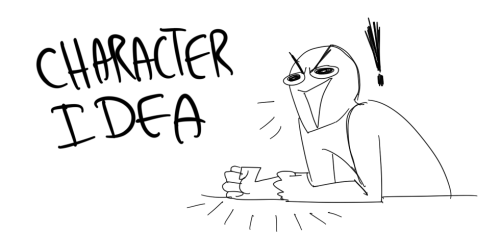
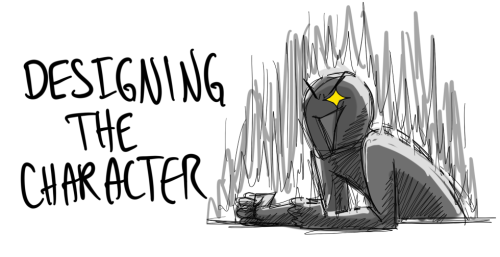

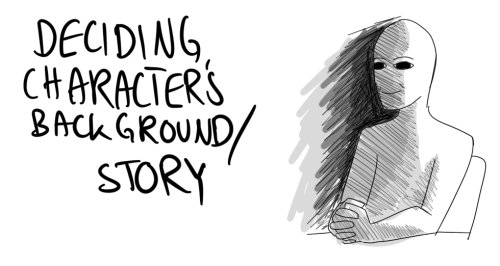
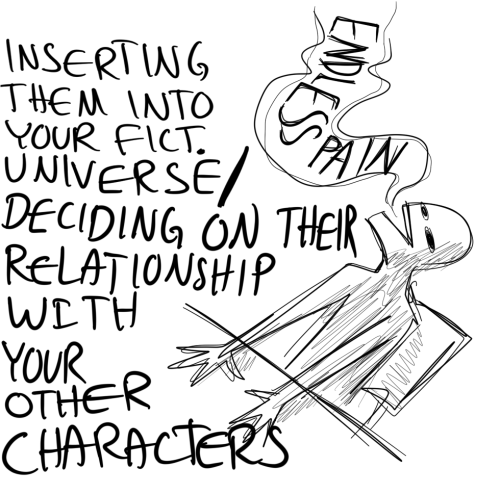
the suffering never ends
click here to read more
more

Writing Romance: Courting
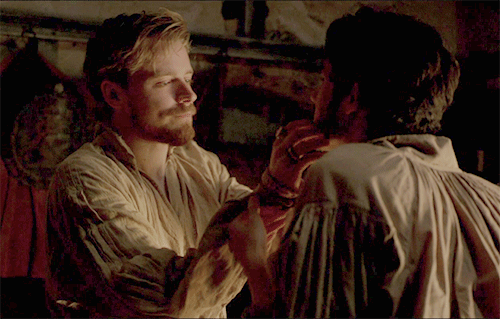
Prior to the 20th century, most couples engaged in courting politics to find their partners, and there were a lot of rules about how to properly court your intended partner. So I figured I’d put out a guide to proper romancing etiquette for those setting their stories in more antiquated settings. But a lot of these courtship practices don’t work as well for same-sex relationships. So, I’ll go through some of the rules for courtship that apply to any story that wants to use courting romances, then I’ll explore ways this could work for a queer couple.

Gender Dynamics in Queer Courtships
Gender is a HUGE aspect of courtship, as the expectations of men and women were starkly different. This leaves queer couples with two choices: either conform to the gender roles, or make the roles more generalized that both parties are expected to uphold. Whichever route you take, be consistent. Not just with queer couples but heterosexual ones as well. If a lesbian barmaid can chase skirts, why can’t a heterosexual seamstress chase chaps?
If you choose to lean into gender roles and active vs passive roles in courtship, I believe it is best to leave it that the one of higher social status takes on the role of the female, as it would be uncouth for a Duke to be chasing lowly Viscounts. Those looking for a higher status husband should be the one working to win the Duke’s affections. While one could argue that the one of higher status should be the active pursuer, the thought of a queen chasing skirts simply fails to capture the regal dignity of the position when we think on it. It seems more in line with the properness and decorum of the era to have the elite have the suitors come to them.
Even if you do away with the gender roles in favor of gender equality in relationships, social status and rank would still be enough to impact the active vs passive roles. A prince looking for a spouse will always be more passive, while his knights, dukes, and counts vie for his affections. Meanwhile, a lowly Baron will almost always be in pursuit of a match. This follows the Order of Precedence, a real life rule of etiquette that states that those of lower status are the ones introduced to someone of higher status. So before a Baron can speak freely with a Prince, someone must introduce the Baron to the Prince and never the other way around. If the Baron is being introduced to a group, they will be introduced in ascending order of rank. The Baron will first be introduced to the Count, then the Duke, and then the Prince. This is why in many court scenes, someone will introduce a character to the king before they speak to one another.
But what if they’re of equal status? What happens when a prince is seeking another prince to be his husband? While they have equal titles, a prince of a tiny, less powerful kingdom is more likely be the pursuer to the prince of a bigger, wealthier kingdom. It’s also unlikely for a prince who is 1st in line to inherit his throne would marry a prince who is also the heir apparent to his own kingdom, unless they were looking to combine their countries into a new alliance. Otherwise, a first born prince is more likely to be chased by a second born prince who won’t inherit his kingdom. Likewise, in a relationship between two Dukes, the one who is higher in the line of succession to the crown would be the one to be pursued by the one lower down the line of succession. TL;DR: Whoever has the bigger house is the one getting pursued by suitors. However, do keep in mind that admittance to the royal palace is strictly by invitation only, so that does make things tricky. But visiting royalty often do have an open invitation to the royal palace. So while a Duke courting a prince would need an invitation to call on the prince for his hand in marriage, the Prince of Belgium would likely be just down the hall from the Prince of France’s quarters, giving him much easier access to court the Prince du Sang of France.

Presenting at Court
When a young gentleman or lady had come of courting and marrying age, their parents would petition to have them present at court, though people could also be recommended by other nobility. This was an effective way for some to social climb, being recommended by someone of much higher status and impeccable reputation can skyrocket their child into an advantageous position. These events would be held at the palace multiple times per year, and were invite only. The Lord Chamberlain was in charge of going over the guest list with the utmost scrutiny, and nobody would be permitted who did not have a pristine and stainless record.
Men of good social standing would present at court at formal events called Levées. They would present before the King or Prince. In the event that there were two queens or otherwise no living males of the royal family, they might present before the highest ranking male in the line of succession, or otherwise just present before the Queen. In the Victorian Era, men wore buckled shoes and swords to both a Levée and a Presentation. They had to wear either court dress or a uniform. So, if he was a soldier, he might present at court wearing his finest military dress uniform.
Presenting at court for girls were much less imaginative, only being called a Presentation. They were expected to drag long trains behind them, to bow and address the queen flawlessly, and then leave the room without fumbling over her dress or shoes. Like with the Levées for the gentlemen, these events would be held multiple times per year, and multiple girls would present on the same day, meaning that all of the girls would be compared. The better she performs, the more desirable she will be. Some men might be charmed by a little clumsiness, but it was generally seen as extremely important for a girl to make a great first impression on the court as a lady of courting and marrying age. This is also why the presentation itself is rather short. There’s a lot of girls to get through, and the queen’s a busy lady.
Someone who was already of marrying age but marries into higher status would be expected to present at court after the wedding. As a king and queen had the power to bestow titles on people at their leisure, it was not impossible for an older married woman to be made a high enough status to make her formal debut at court, and older women had different expectations when making their debut, such as styling themselves differently, and wearing different colors. Thus if, for example, a lowly washer woman saved a nobleman’s son from drowning, she might be rewarded by being recommended for a title like Lady or Baroness and being allowed to present at court. Regardless of age, the presentation mostly serves as an introduction of a new face at court to the rest of high society.

The Rules for Men
Men were encouraged not to flirt with everyone they found attractive, as being too friendly might earn them a reputation that hurts their social image. Guidelines to courtship from the Victorian Era makes it clear to young men that not every girl will be interested in his pursuit of her, and that he should take a lack of positive response to any advances as his cue to move on, lest he embarrass himself or his family.
Never allow a woman to be uncertain of your feelings and intentions. Women were permitted some leeway with acting coy, but for a man to toy with a woman’s affections was seen as improper. Once a man is aware a woman mistakes his attention for affection, he is to quickly, yet politely, lay bare his true feelings. In a similar vein, a man should never make any declaration in jest, whether expressing love or proposing marriage, any attempt to make such grand declarations as a jest does grave disservice to the woman, and will earn him great dissent and contempt from those of good breeding and high social standing. This second rule also extends to the fairer sex, and is just universally sound advice when navigating romantic entanglements.
A man must put out his cigar in the company of women, which also meant that if a woman approaches him to engage him in conversation, he must discard it, regardless of how expensive it was.
When greeting a woman in public, a man should tip his cap in a polite manner, though if she stops to talk to him, she will extend her hand to him. In this case, he must remove his hat with the hand farthest from her, and take her extended hand with the one closest to her. If they are well acquainted, he might bestow the back of her hand with a quick kiss before letting go of her hand. He would then be expected to walk with her as they converse. If he has somewhere to be or the conversation has reached a natural ending, he should politely excuse himself, and wait for her to say her farewells before he leaves her company. If he simply cannot stop to talk, he should make his urgency clear, and apologize before carrying on, still being sure to tip his hat in a show of politeness.

The Rules for Women
Accepting gifts from a suitor is dangerous. If a suitor brings you a gift and you accept it, it indicates that you are interested in their advances. Being too accepting can also cause a man to continue to shower you with gifts, which could be seen as greedy. If disinterested in the suitor, it is advised to decline his gift. However, it’s best to try and decline his gift in a courteous manner, as a calous decline will earn you a reputation for a foul temperament, which may discourage other suitors.
An unmarried woman should never be outside alone. She should always be in the company of a companion, chaperone, parent, or legal guardian. This is a means of protecting women from being set upon by unscrupulous men.
Even while courting one another, an unmarried woman should never be alone in the company of a man outside of her immediate family. This usually meant that any sort of date the pair might go on will always be supervised from afar by a parent or chaperone, such as a lady-in-waiting or a governess. The young couple would usually be left some leeway to conversate privately, so long as they were within clear eyesight of the woman’s caretakers, and close enough for them to step in should the man act dishonorably toward her.
A man will come to call upon a woman he is interested in pursuing, meaning that he will come to her house in order to pitch woo or charm her. This is to ensure she is in the safety and protection of her family, so as to prevent her from being done ill by the man where her family cannot protect her. As such, a woman would never call upon a man or go to his residence. In a queer relationship, this is simply swapped to the one of lower status coming to the house of the one of higher status. Although, due to the role of status, the suitor will require an invitation (either specific or open) to come a-courting on the object of their affections.
Women would often have a dance card which indicated who she intended to dance with at an upcoming ball. She’d save a dance for the host, and likely also her suitor. Any special guest of the ball would likely also be afforded a dance. If she has multiple suitors, she would be expected to dance with all of them, and not to spend her entire evening doting on only one of them. It was also seen as improper for her to dance too often with the same partner, regardless of whether she was looking for a spouse or not. If she was the guest of honor, it might be expected for her to share more than one dance with the host, possibly sharing the first and/or last dance with him to start or close out the night. Sometimes at dances, the guests would know the music selection and dances ahead of time, and women would have the music or dances on their dance cards. While I don’t know if it was done historically, I don’t think it would be too unorthodox for a man to write a woman ahead of a ball (assuming he’s familiar enough for such audacity) and request that she save a specific kind of dance for him. If his Waltz is shabby, but he does a marvelous Minuet, he’d want to be sure his dance with a possible match would be a dance he’s more proficient with. A lady might fill up her entire dance card ahead of time, but she’d more often than not leave a spot or two open to allow for more spontaneity. As dance cards were only used by women, I don’t know if they’d be used by gay men in courtship or not. Queer people at a ball however might wear something to indicate their preference in dance partner. A visual cue to let the gentlemen know that the Baroness of Arendale doesn’t have much interest in dancing with men.

Courting in Public
Courtship, especially among the upper class, was predominantly undergone during the Social Season, which in the UK ran from March until September, and included a wide variety of events and activities including balls, picnics, dinner parties, and sporting events. During the social season, every personage of noble blood would gather in a central location, usually the capital. These were not the only times during the year when people courted, it was more akin to a feeding frenzy for eligible bachelors, largely due to all of their marital options being assembled for the season, making it much easier to find someone to his liking.
It was wildly scandalous to show public displays of affection. That was to be reserved for private life. As such, suitors would instead exchange gifts, photographs or locks of hair instead of kissing or holding hands. For a queer relationship, it might be allowable for suitors to give one another their clothing, jewelry, weapons, or armor, either in their entirety or a particular piece of it. However the intimacy of sharing garments would likely be reserved for couples that have been courting for some time, and would be ill-advised as a first gift to one’s admirer.
At a ball or other such party, if someone catches your fancy but you’ve never met them before, it is impolite to speak to them until the host or hostess has formally introduced you to one another. Even if you dance with them, it is ill-mannered to speak to them during and after the dance if neither of you have been introduced to one another.
If someone insults your suitor, a gentleman should be ready to act the part of a knight and defend his lover’s honor. If his partner initiated the conflict, it is advised for a gentleman to apologize on their behalf, though not so meekly as to offend their lover or besmirch their honor. If another man is looking to start a quarrel, a gentleman should not return his hostilities, as a foul temper and lack of self-control is an indication of ill manners and poor breeding, bringing you down to the other man’s level.
A gentleman should always carry his lady’s luggage, and on the sidewalk, takes the side closest to the street to keep his lady’s dress from being splashed with mud or water, or to keep her safe should a wayward horse, carriage, or car veer off the street, it is more likely to strike him than her.
A couple talking in public must speak succinctly, poignantly, and softly. Long drawn-out conversations were best for private, whereas in public, it was unwise to spend one’s entire evening conversing with a single person, unless it is well-known the severity of their entanglement. It was considered ill-manner to speak excessively or too loudly as to disturb others.

Matchmaking and Gold-Digging
Due to eldest sons getting the entire inheritance of his father, women seeking to court would seek out eldest sons who would be coming into their family fortune, while sons left out of the inheritance would be more willing to marry below their station in pursuit of rich heiresses whose wealth would keep them in the lifestyle to which they have grown accustomed. Likewise in a queer relationship, wealth and power would likely effect the interests of relationships, and differences in inheritance laws might also change the power dynamics in courtships. If a daughter can inherit the full control of her father’s mercantile empire, she’s going to be fighting off second-born suitors with a stick, regardless of gender.
I mentioned above the Levées and Presentations that young nobles would go through when entering the public sphere of the court. Parents of other noble families would often be in attendance of these parties, and if a presenter impressed them, they may approach the parents and suggest a courtship between their children. This is less of an arranged marriage, and more the parents steering their children to give each other a chance. It’s much closer to playing matchmaker than paying 5 cows and a corn mill for someone’s daughter. The children could still decline the courtship out of lack of interest or an absence of chemistry, so long as they settled things politely.

Watch Bridgerton
While Bridgerton is by no means a perfect replica of historical courtship, as its Diamond of the Fresh Water is largely a creation of the show, things such as the calling of suitors, the responsibility of first-borns compared to second-born and third-born sons, marital entrapment, and elevating one’s status is very well executed. If you want to write period romance, Bridgerton is an excellent resource to take inspiration from. It’s a great way to see these mechanics in action and hopefully watching it will spark something in your own imagination.

While that was a lot of information, I do hope it is something you found helpful. Most of the rules are much harsher on upper class characters, but most people who write historical romances are more interested in the romance between the countess and the duke, rather than the washer woman and the fisherman. I will also admit this is not a flawless breakdown, as I could have easily missed something. Still, as someone who loves period dramas and historical costume, I couldn’t leave such a tantalizing topic untouched.
-
 girl-meets-void liked this · 3 months ago
girl-meets-void liked this · 3 months ago -
 arrowviverra liked this · 4 months ago
arrowviverra liked this · 4 months ago -
 sunstoneboy liked this · 8 months ago
sunstoneboy liked this · 8 months ago -
 sleepydrea liked this · 8 months ago
sleepydrea liked this · 8 months ago -
 ilovemyaxe liked this · 8 months ago
ilovemyaxe liked this · 8 months ago -
 conjuremuriel liked this · 9 months ago
conjuremuriel liked this · 9 months ago -
 dipstickflopdoodle reblogged this · 9 months ago
dipstickflopdoodle reblogged this · 9 months ago -
 aaron-yaps liked this · 9 months ago
aaron-yaps liked this · 9 months ago -
 lithiumdaydreams reblogged this · 9 months ago
lithiumdaydreams reblogged this · 9 months ago -
 lithiumdaydreams liked this · 9 months ago
lithiumdaydreams liked this · 9 months ago -
 asphodel-disciple liked this · 9 months ago
asphodel-disciple liked this · 9 months ago -
 kaylajanelove liked this · 9 months ago
kaylajanelove liked this · 9 months ago -
 alexalexyeii liked this · 9 months ago
alexalexyeii liked this · 9 months ago -
 ladyiristheenchantress liked this · 9 months ago
ladyiristheenchantress liked this · 9 months ago -
 icj-chi liked this · 9 months ago
icj-chi liked this · 9 months ago -
 the-house-of-darksong liked this · 9 months ago
the-house-of-darksong liked this · 9 months ago -
 klavguitar liked this · 9 months ago
klavguitar liked this · 9 months ago -
 weirdwitchypeach reblogged this · 9 months ago
weirdwitchypeach reblogged this · 9 months ago -
 weirdwitchypeach liked this · 9 months ago
weirdwitchypeach liked this · 9 months ago -
 star-max-1111 liked this · 9 months ago
star-max-1111 liked this · 9 months ago -
 z3nko-kitsune liked this · 9 months ago
z3nko-kitsune liked this · 9 months ago -
 critterbeaste liked this · 9 months ago
critterbeaste liked this · 9 months ago -
 error404-witch-not-found reblogged this · 9 months ago
error404-witch-not-found reblogged this · 9 months ago -
 system-error404-notfound liked this · 9 months ago
system-error404-notfound liked this · 9 months ago -
 buriedpentacles liked this · 9 months ago
buriedpentacles liked this · 9 months ago -
 blackpearl999 liked this · 9 months ago
blackpearl999 liked this · 9 months ago -
 lifeaccordingtoluna reblogged this · 9 months ago
lifeaccordingtoluna reblogged this · 9 months ago -
 lunalavenderfae liked this · 9 months ago
lunalavenderfae liked this · 9 months ago -
 forest-of-aurora reblogged this · 9 months ago
forest-of-aurora reblogged this · 9 months ago -
 forest-of-aurora liked this · 9 months ago
forest-of-aurora liked this · 9 months ago -
 demigoddemibro reblogged this · 9 months ago
demigoddemibro reblogged this · 9 months ago -
 jhsavir liked this · 9 months ago
jhsavir liked this · 9 months ago -
 certaindefendorchaos liked this · 9 months ago
certaindefendorchaos liked this · 9 months ago -
 kjammerr liked this · 9 months ago
kjammerr liked this · 9 months ago -
 thecupidwitch liked this · 9 months ago
thecupidwitch liked this · 9 months ago -
 yippykiyahmrfalcon reblogged this · 9 months ago
yippykiyahmrfalcon reblogged this · 9 months ago -
 isismozart reblogged this · 9 months ago
isismozart reblogged this · 9 months ago -
 moonlight-and-lilacs reblogged this · 9 months ago
moonlight-and-lilacs reblogged this · 9 months ago -
 h3r3-n0r-there reblogged this · 9 months ago
h3r3-n0r-there reblogged this · 9 months ago -
 h3llraisedhunny liked this · 9 months ago
h3llraisedhunny liked this · 9 months ago -
 blooxxy liked this · 9 months ago
blooxxy liked this · 9 months ago -
 shesfeastry liked this · 9 months ago
shesfeastry liked this · 9 months ago -
 kansas-sun-witch reblogged this · 9 months ago
kansas-sun-witch reblogged this · 9 months ago -
 kansas-sun-witch liked this · 9 months ago
kansas-sun-witch liked this · 9 months ago -
 celestinvela liked this · 9 months ago
celestinvela liked this · 9 months ago -
 ishistudy liked this · 9 months ago
ishistudy liked this · 9 months ago
